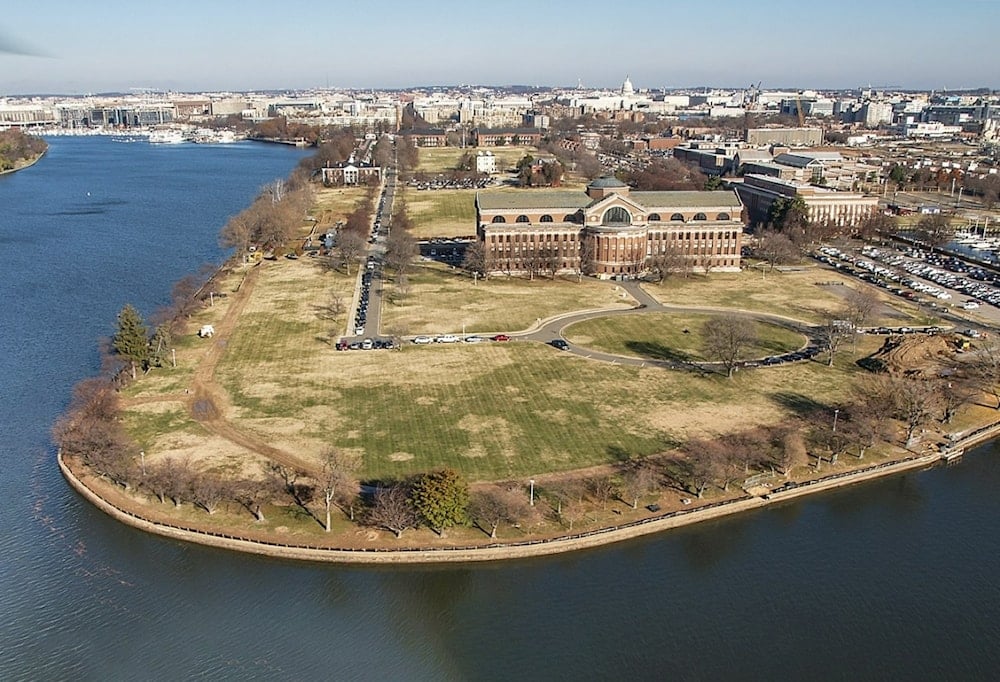Trump officials seek refuge in DC military bases amid safety concerns
Amid rising polarization and the aftermath of Charlie Kir's assassination, several Trump administration officials have relocated to military bases for safety.
-

Aerial view looking north at Fort Lesley J. McNair in Washington, D.C., in the United States (Wikipedia Commons)
A growing number of senior officials in Donald Trump's administration have reportedly moved into military housing around Washington, DC, amid rising security concerns and deepening political division in the United States, according to The Atlantic.
Stephen Miller, Trump's deputy chief of staff and homeland security adviser, recently became the latest official to relocate with his family to a nearby military base. The decision came after an unsettling incident in September when a protester confronted his wife outside their home and told her, "I'm watching you," the report revealed.
Miller's move follows similar actions taken by other prominent figures in the administration. Homeland Security Secretary Kristi Noem transferred from her DC apartment to the Coast Guard commandant's residence at Joint Base Anacostia-Bolling after her address was made public. Secretary of State Marco Rubio and Defense Secretary Pete Hegseth have also opted to live on "Generals' Row" at Fort McNair, while Army Secretary Dan Driscoll reportedly moved into a shared residence at Joint Base Myer-Henderson Hall.
The report added that Director of National Intelligence Tulsi Gabbard sought to secure housing at Fort McNair but was unable to do so because of limited availability. The increasing demand for such protected housing has strained capacity at several facilities.
Fortified Democracy
According to The Atlantic, many of these decisions were prompted by heightened fears following the September 10 assassination of conservative activist Charlie Kirk, founder of Turning Point USA, a right-wing organization known for promoting pro-Trump ideology, staunch Zionism, and racially charged "anti-woke" campaigns on US college campuses. While Kirk was celebrated among the American right as a champion of free speech, critics accused him of spreading hate speech, Islamophobia, and white-nationalist narratives under the guise of patriotism.
Kirk's killing not only fueled fears among Trump officials but also ignited a sweeping backlash against his detractors. The incident triggered a crackdown on journalists, educators, and activists who had previously denounced his rhetoric, effectively narrowing the space for dissent and exposing the fragility of free expression in an increasingly polarized political landscape.
The relocations, the publication noted, reflect a wider atmosphere of polarization in the country, one where political figures now see physical protection as essential to performing their duties. Yet, as commentators argue, this physical withdrawal from public space also symbolizes a political retreat, a sign that democracy in the United States increasingly depends on containment, security, and separation rather than openness, accountability, and civic trust.
Read more: MAGA movement divided over response to Kirk’s killing: Politico
On October 15, the State Department announced that the United States had revoked the visas of six foreign nationals who posted comments on social media regarding the assassination of Kirk.

 3 Min Read
3 Min Read








